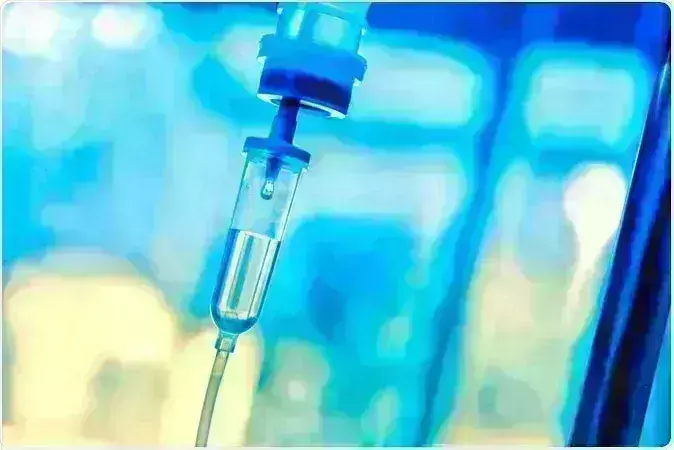- Home
- Medical news & Guidelines
- Anesthesiology
- Cardiology and CTVS
- Critical Care
- Dentistry
- Dermatology
- Diabetes and Endocrinology
- ENT
- Gastroenterology
- Medicine
- Nephrology
- Neurology
- Obstretics-Gynaecology
- Oncology
- Ophthalmology
- Orthopaedics
- Pediatrics-Neonatology
- Psychiatry
- Pulmonology
- Radiology
- Surgery
- Urology
- Laboratory Medicine
- Diet
- Nursing
- Paramedical
- Physiotherapy
- Health news
- Fact Check
- Bone Health Fact Check
- Brain Health Fact Check
- Cancer Related Fact Check
- Child Care Fact Check
- Dental and oral health fact check
- Diabetes and metabolic health fact check
- Diet and Nutrition Fact Check
- Eye and ENT Care Fact Check
- Fitness fact check
- Gut health fact check
- Heart health fact check
- Kidney health fact check
- Medical education fact check
- Men's health fact check
- Respiratory fact check
- Skin and hair care fact check
- Vaccine and Immunization fact check
- Women's health fact check
- AYUSH
- State News
- Andaman and Nicobar Islands
- Andhra Pradesh
- Arunachal Pradesh
- Assam
- Bihar
- Chandigarh
- Chattisgarh
- Dadra and Nagar Haveli
- Daman and Diu
- Delhi
- Goa
- Gujarat
- Haryana
- Himachal Pradesh
- Jammu & Kashmir
- Jharkhand
- Karnataka
- Kerala
- Ladakh
- Lakshadweep
- Madhya Pradesh
- Maharashtra
- Manipur
- Meghalaya
- Mizoram
- Nagaland
- Odisha
- Puducherry
- Punjab
- Rajasthan
- Sikkim
- Tamil Nadu
- Telangana
- Tripura
- Uttar Pradesh
- Uttrakhand
- West Bengal
- Medical Education
- Industry
Thiamine may be effective and safe option for treatment of patients with septic shock: Study

Thiamine may be effective and safe in the treatment of patients with septic shock suggests a new study published in critical care.
This is a post hoc analysis of combined cohorts from two previous Phase II clinical trials to assess the effect of thiamine administration on kidney protection and mortality in patients with septic shock. Patient-level data from the Thiamine in Septic Shock Trial (NCT01070810) and the Thiamine for Renal Protection in Septic Shock Trial (NCT03550794) were combined in this analysis. The primary outcome of the current study was survival without the receipt of renal replacement therapy (RRT). Analyses were performed on the overall cohort and the thiamine-deficient cohort (thiamine < 8 nmol/L).
Results: A total, 158 patients were included. Overall, thiamine administration was associated with higher odds of being alive and RRT-free (adjusted odds ratio [aOR]: 2.05 [95% confidence interval (CI) 1.08–3.90]) and not needing RRT (aOR: 2.59 [95% CI 1.01–6.62]). In the thiamine-deficient group, thiamine administration was associated with higher odds of being alive and RRT-free (aOR: 8.17 [95% CI 1.79–37.22]) and surviving to hospital discharge (aOR: 6.84 [95% CI 1.54–30.36]). There was a significant effect modification by baseline thiamine deficiency for alive and RRT-free (interaction, p = 0.016) and surviving to hospital discharge (p = 0.019). In the combined analysis of two previous randomized trials, thiamine administration was associated with higher odds of being alive and RRT-free at hospital discharge in patients with septic shock. This signal was stronger in patients with thiamine deficiency.
Reference:
Vine, J., Lee, J.H., Kravitz, M.S. et al. Thiamine administration in septic shock: a post hoc analysis of two randomized trials. Crit Care 28, 41 (2024). https://doi.org/10.1186/s13054-024-04818-1
Dr. Shravani Dali has completed her BDS from Pravara institute of medical sciences, loni. Following which she extensively worked in the healthcare sector for 2+ years. She has been actively involved in writing blogs in field of health and wellness. Currently she is pursuing her Masters of public health-health administration from Tata institute of social sciences. She can be contacted at editorial@medicaldialogues.in.
Dr Kamal Kant Kohli-MBBS, DTCD- a chest specialist with more than 30 years of practice and a flair for writing clinical articles, Dr Kamal Kant Kohli joined Medical Dialogues as a Chief Editor of Medical News. Besides writing articles, as an editor, he proofreads and verifies all the medical content published on Medical Dialogues including those coming from journals, studies,medical conferences,guidelines etc. Email: drkohli@medicaldialogues.in. Contact no. 011-43720751


